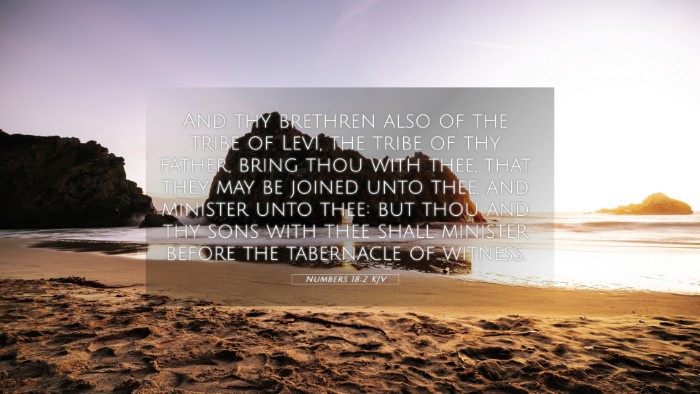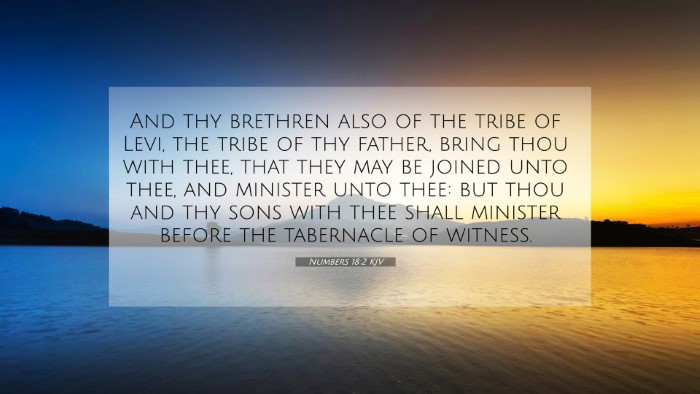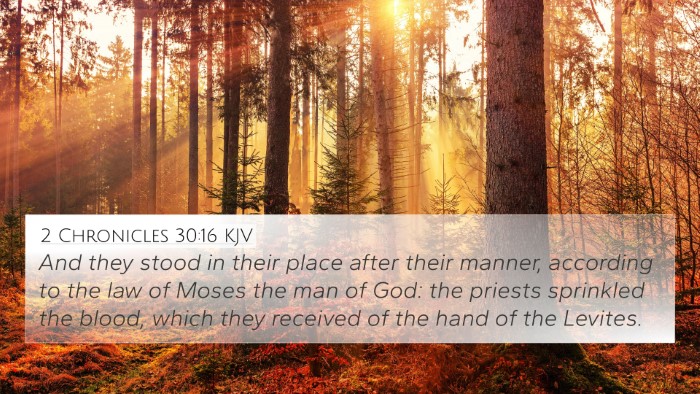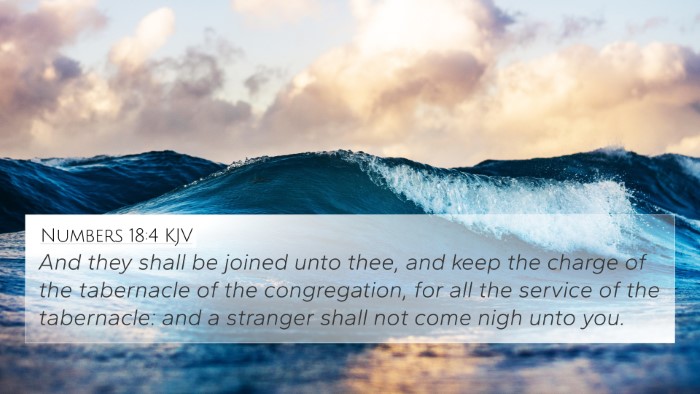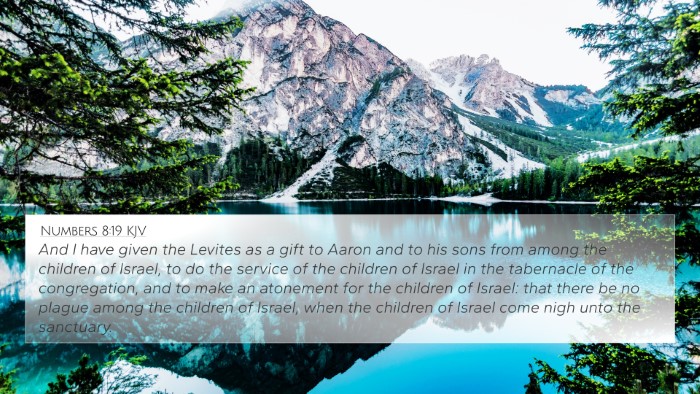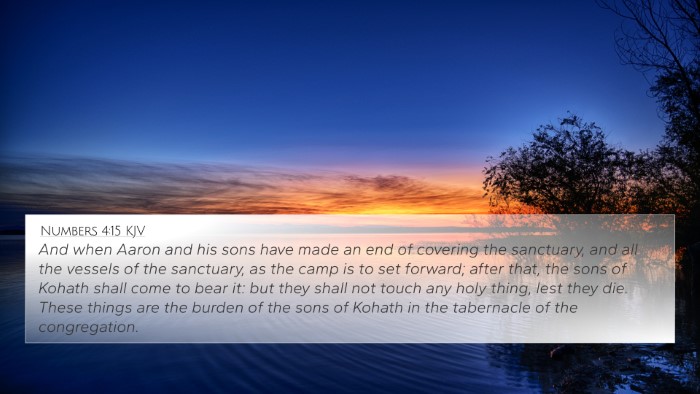Understanding Numbers 18:2
Verse: Numbers 18:2 - "And thy brethren also of the tribe of Levi, the tribe of thy father, bring thou with thee, that they may be joined unto thee, and minister unto thee: but thou and thy sons with thee shall minister before the tabernacle of witness."
The verse emphasizes the importance of the priestly role assigned to Aaron and his sons while also acknowledging the support role played by the Levites. Understanding this verse requires an in-depth analysis of its context within the wider narrative of the Book of Numbers and its theological implications. Below is a comprehensive examination based on insights from respected public domain commentaries.
Commentary Insights
-
Matthew Henry: Henry explains that this passage establishes the division of responsibilities within the priesthood and the Levitical tribe. It underscores that while Aaron and his sons have the unique role of high priests, the Levites are indispensable helpers. The priestly work is not just a solo venture; rather, it involves collaboration and connection. This arrangement ensures that the work of ministry is thorough and efficient.
-
Albert Barnes: Barnes highlights that this directive serves to create a structured approach to service in the tabernacle. He notes that the Levites, as helpers, would assist in various duties, thus avoiding the burdensome workload on Aaron alone. This cooperative ministry reflects God’s design for leadership and community, emphasizing that service is to be shared.
-
Adam Clarke: Clarke points out that this verse reveals details about the hierarchy within the Israelite community, particularly concerning worship and ministry. The mention of the "tabernacle of witness" indicates the sacredness of the duties involved. Clarke also emphasizes the honor bestowed upon the Levites, who, despite not being priests, play a significant role in the worship system.
Thematic Connections
This verse is deeply interwoven with themes of leadership, service, and community in the Old Testament. It raises interesting parallels and offers connections to other scripture pertinent to understanding divine service and community roles.
Bible Cross-References
- Exodus 28:1: God commands Aaron to bring his sons, demonstrating the importance of family in ministry.
- 1 Chronicles 23:28: Outlines the division of labor among the Levites, similar to the roles defined in Numbers 18:2.
- Hebrews 5:4: Discusses the calling of priests, showing the continuity of priestly roles from Old to New Testament.
- Deuteronomy 10:8: Discusses the role of the Levites in carrying the ark, reinforcing the dedicated service required among the tribes.
- Hebrews 7:5: Relates to the Levites receiving a commandment to collect tithes, indicating their financial support role.
- Luke 10:1-2: Jesus sending out the seventy illustrates the communal aspect of ministry, aligning with the concept of shared responsibilities.
- Acts 6:1-6: The early church addressing needs among the members shows the principle of shared ministry as found in Numbers 18:2.
Application and Reflection
In Numbers 18:2, we observe a model of shared ministry that can be applied today, reflecting on how the body of believers supports one another in service. It reminds us that leadership in ministry is not a one-person show but a collaborative effort where each member plays an essential part. This can serve as a foundational principle for church structure and community involvement.
When studying, connecting this verse with others enhances understanding. Utilizing tools for Bible cross-referencing can help to explore these themes further, aiding in comprehensive Bible study. This practice can reveal rich connections between different scripture passages, providing a broader context of God's plan.
Conclusion
Numbers 18:2 is not just a historical account; it encapsulates vital theological principles and community dynamics that resonate throughout scripture. By engaging in comparative Bible verse analysis and understanding thematic Bible verse connections, believers can deepen their comprehension of divine service, leadership, and community responsibilities.

